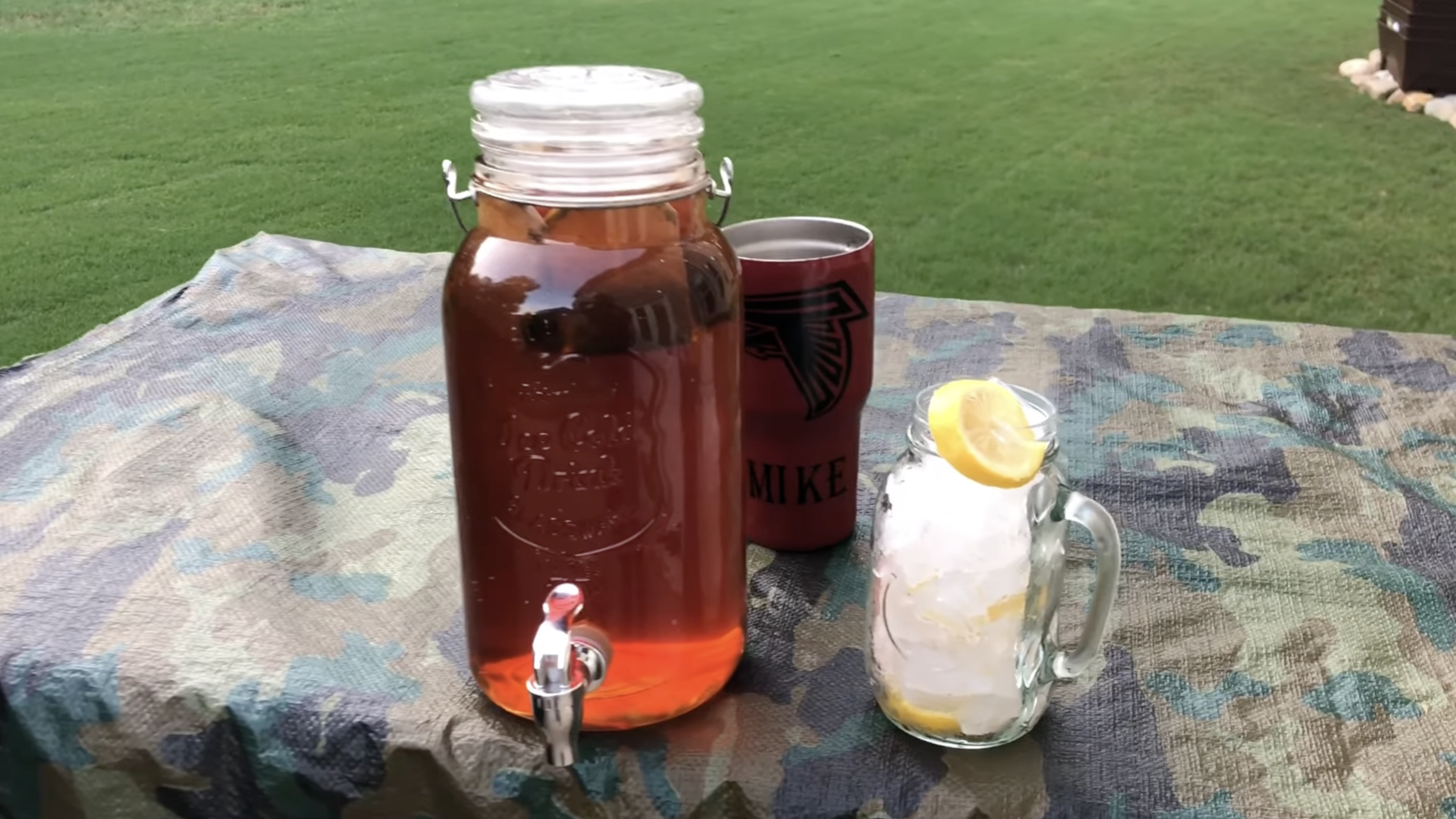Maybe Don't Make Sun Tea This Summer
Steeping tea in the sun sounds sweet, but the results might not be.
When I was a kid, sun tea was a pretty common sight at friends' houses throughout the summer. I'd see a large jar of water with tea bags floating around in it, lazily hanging out in a sunbeam, the liquid growing darker as the hours passed. There's something romantic about the idea of drinking tea brewed by the warmth of the sun, but from a food safety perspective, it might not be as cute as it seems.
Why you shouldn’t make sun tea
I hate to burst your bubble, but blame the CDC. As hot as you might feel in the summer sun, Taste of Home explains that the tea in a glass jar usually doesn't reach past 140 degrees Fahrenheit—it usually gets to 130 degrees F—and thus the beverage is sitting in what food safety guidelines call the danger zone.
The danger zone is between 40 and 140 degrees Fahrenheit, the temperature range that both hot and cold foods level out to once they've been left to sit in the elements for a while. Freezing food or cooking it at high temperatures keeps it safe for consumption; however, within the 40-140 window, bacteria can thrive. We often associate food poisoning with items like meat and other grilling staples, but liquids can harbor the same bacteria and pose a risk.
Granted, I've known plenty of people who swear by sun tea and have drank it for years without any issue—actual poisoning by sun tea is rare—but I also don't want any of you to be doubled over with potential food poisoning when you could make your tea just as easily using a different method.
Food Safety News cautions that the bacteria involved are usually coliform bacteria, such as Klebsiella and Enterobacter. The most well-known coliform bacteria is E. coli.
Cold brew your tea instead
A better hands-off way to make iced tea is by cold brewing it. Bon Appétit says the best way to make cold brew tea is by steeping tea leaves with cold water and then letting it sit in your refrigerator for several hours. This is just as much of a hands-off process as sun tea, but minimizes the risk of bacteria formation. Plus, the cold brewing temperature will prevent astringent compounds from lending a bitter flavor to the final product, which means an overall smoother sip. With warm weather right here right now, I think I'll make a batch this weekend.
